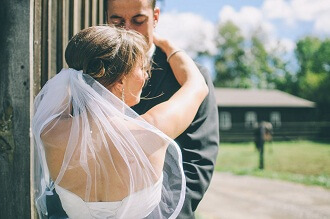Heterosexual Couple Win Right to Civil Partnership
Heterosexual Couple Win Right to Civil Partnership

A heterosexual couple has won the right to legally join in a civil partnership instead of a marriage, after England’s top court ruled that refusing the couple this opportunity would be a breach of their human rights. In a unanimous ruling delivered in June, five Supreme Court judges agreed that the Civil Partnership Act 2004 was incompatible with the European Convention on Human Rights.
Rebecca Steinfeld and Charles Keidan appealed for the right to legally join in a civil partnership, despite the current statute only extending such rights to same-sex couples. The couple said they felt unable to marry due to their “deep-rooted ideological objections to marriage” and its “historically hetero-normative and patriarchal” connotations.
Speaking outside the court, Mr Keidan and Ms Steinfeld said they were “elated” that this verdict would likely result in the extension of “civil partnerships to all.”
A legal representative for the couple also celebrated the victory, stating: “these are important issues for my clients because they cannot marry conformable with their conscience.”
Case highlights ‘legal inequality’ of current law
Civil partnerships were introduced to provide a legally recognised spousal union for same-sex couples with the passing of the Civil Partnership Act 2004.
However, after the passing of the Marriage (Same Sex Couples) Act in 2013, a situation arose whereby homosexual couples could either register for a civil partnership or get married, whilst heterosexual couples could only get married. This state of affairs has prompted legal experts, campaigners and politicians to complain of legally sanctioned inequalities between couples of different sexual orientations.
Conservative MP and former Children’s Minister MP Tim Loughton has proposed a private members bill aiming to extend civil partnership rights to heterosexual couples, urging lawmakers in the House of Commons to “resolve this legal inequality.”
The Government agreed to address the oversight, but had maintained that this would not be achieved before 2020. Now however, the Supreme Court judges have indicated that this deadline amounts to an inappropriate delay in resolving a statutory breach of UK citizens’ human rights.
Lord Kerr criticised the government for requesting such an “indulgence of time” to rectify the present legislative “situation of inequality” created by government legislation in the first place.
Speaking after the case, a spokesperson for the Equalities Office stated: “The Government is very aware of its legal obligations, and we will obviously be considering this judgment of the Supreme Court with great care. The spokesperson added that the government would “study the Court’s judgement carefully and respond in due course.”
Civil partnerships drop in number after same-sex marriage legalised
Civil partnerships grant couples the right to legal recognition of their relationship status, with those registered as civil partners obtaining the same legal status, rights and responsibilities as a married couple.
Like marriage, a civil partnership can only be obtained in the UK by those over 18 years old (or over 16 years old with parental permission), and those entering a civil partnership cannot be closely related or married to another person.
Further, civil partners are entitled to the same legal treatment and exemptions in terms of tax, inheritance and pensions as married couples.
The court’s verdict and resulting discussion of legislative reform could therefore have a significant impact on the government’s pension costs and tax income, should heterosexual couples who would never have married now opt for civil partnerships.
An average of 6,305 same sex couples registered for civil partnerships between 2007 and 2013, but this number has dropped since the legalisation of same-sex marriage in 2013, with just 890 couples registering for civil partnerships in 2016.
Contact our divorce and family law experts today
If you would like to discuss any aspect of divorce and family law, or want to draw up a pre or post-nuptial agreement or cohabitation agreement, call our mediation, divorce and family dispute resolution solicitors in absolute confidence on 03456 381381. Alternatively, email us at familylaw@ibblaw.co.uk.
